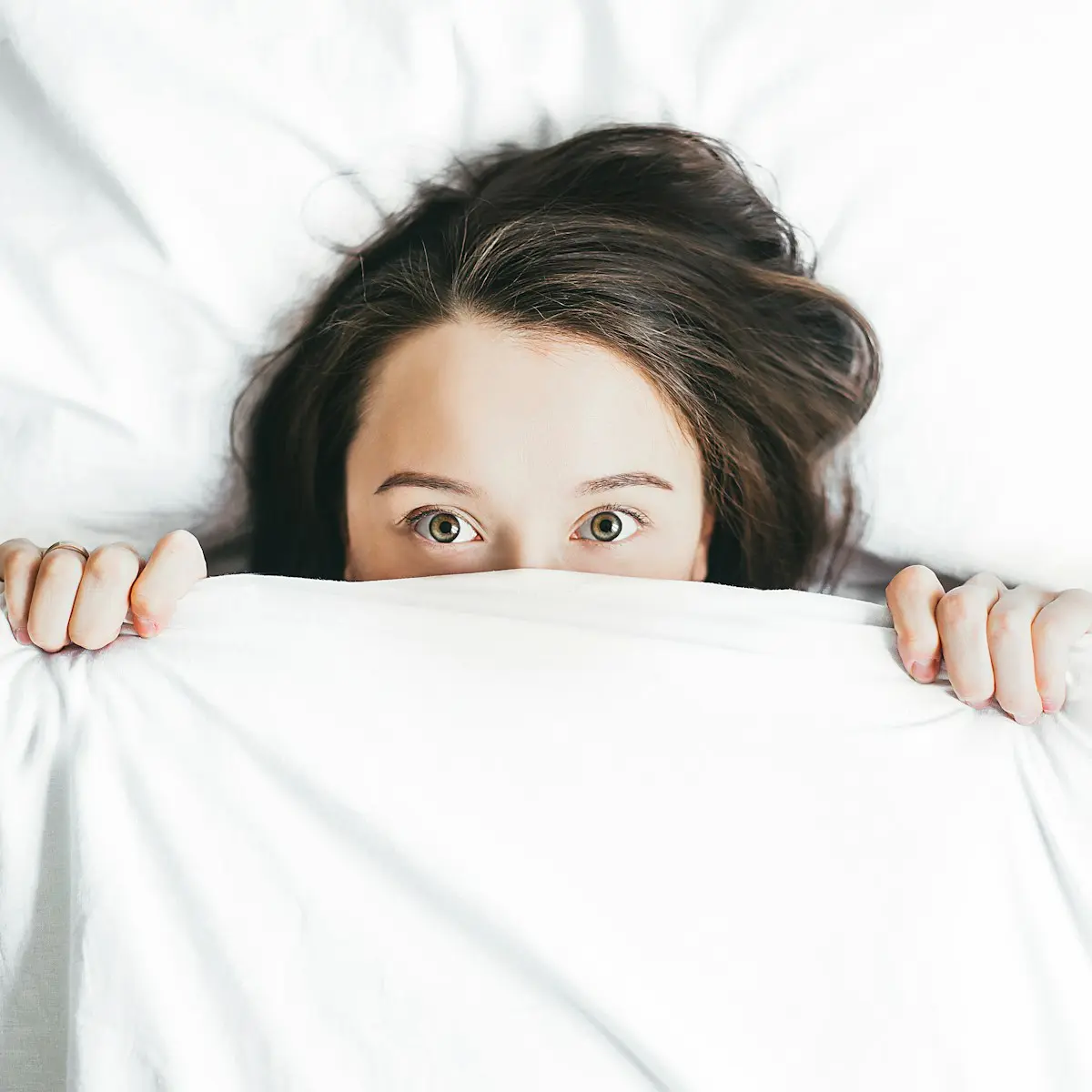There may be a link between anxiety and sleep problems like insomnia, with anxiety often disrupting the ability to fall or stay asleep.
Understanding the relationship between anxiety and sleep disorders is essential for recognising symptoms early and accessing appropriate support. This article explores this connection and the impact on daily functioning
The Two-Way Street Between Anxiety and Sleep
Anxiety and sleep disturbances are often described as having a bidirectional relationship – each can contribute to and exacerbate the other. This means that anxiety can lead to poor sleep, and conversely, insufficient or disrupted sleep can heighten anxiety symptoms.
When the brain is in a heightened state of arousal due to anxiety, it becomes harder to wind down for rest. Thoughts may race, heart rates may rise, and the body’s natural circadian rhythm can be disrupted. Over time, this may lead to patterns of sleep avoidance or frequent night wakings, which can diminish overall sleep quality.
On the other side, chronic sleep deprivation affects areas of the brain responsible for emotional regulation. Sleep difficulties can impair the ability to manage stress effectively, increasing vulnerability to anxiety disorders.
Common Sleep Disorders Associated with Anxiety
While occasional sleeplessness is normal, recurring sleep issues may suggest the presence of a sleep disorder. The most common types associated with anxiety include:
- Insomnia: Difficulty falling asleep, staying asleep, or waking too early.
- Sleep onset latency: Prolonged time taken to transition from wakefulness to sleep.
- Night-time panic attacks: Sudden awakenings with intense fear, often without a clear trigger.
- Non-restorative sleep: Feeling unrefreshed upon waking despite adequate sleep duration.
These disruptions can become part of a self-perpetuating cycle, where fear of not sleeping leads to heightened anxiety at bedtime, further impairing the ability to rest.
The Impact on Daily Functioning
Sleep disturbances linked to anxiety can affect multiple areas of daily life:
- Cognitive performance: Difficulty concentrating, poor memory, and slower reaction times.
- Mood: Increased irritability, emotional sensitivity, or depressive symptoms.
- Physical health: Lowered immune function, increased fatigue, and heightened pain sensitivity.
- Occupational and social challenges: Reduced productivity, absenteeism, and withdrawal from relationships.
These effects can significantly reduce quality of life and overall wellbeing. Mental health conditions and sleep problems contribute notably to the burden of disease in Australia.
Approaches to Management
Addressing anxiety-related sleep disorders involves recognising the interconnection between mind and body. Effective treatment approaches consider both issues simultaneously. These may include:
- Cognitive Behavioural Therapy for Anxiety (CBT): CBT can address the root causes of anxiety, reduce physiological arousal, and improve sleep indirectly by alleviating worry and fear.
- Relaxation strategies: Mindfulness, progressive muscle relaxation, and deep breathing can lower the body’s stress response and facilitate sleep.
- Sleep hygiene education: Simple changes such as reducing screen time before bed, maintaining a consistent sleep schedule, and creating a calm sleep environment can make a meaningful difference.
When to Seek Professional Help
It may be time to seek support if:
- Anxiety or sleep issues persist for more than a few weeks.
- Your daily life, work, or relationships are affected.
- Self-help strategies are not providing enough relief.
- Symptoms are worsening or accompanied by low mood, hopelessness, or distress.
If you or someone you know is experiencing difficulties with anxiety and sleep, contact Strategic Psychology today to discuss how we can assist you with personalised psychological care.
Conclusion
Anxiety and sleep disorders frequently co-occur and can significantly impact mental and physical wellbeing.
If you’re struggling with sleep and anxiety, contact Strategic Psychology to find out how our qualified team can support you.
References
- Australian Institute of Health and Welfare (AIHW) 2023, Mental health services in Australia, AIHW, retrieved from: https://www.aihw.gov.au/mental-health (accessed 10 April 2025).
- Beyond Blue 2023, Anxiety, Beyond Blue, retrieved from: https://www.beyondblue.org.au/mental-health/anxiety (accessed 10 April 2025).
- Black Dog Institute 2023, Anxiety and sleep, Black Dog Institute, retrieved from: https://www.blackdoginstitute.org.au/resources-support/anxiety/ (accessed 10 April 2025).
- Centre for Clinical Interventions 2023, Resources for insomnia and anxiety, Government of Western Australia, retrieved from: https://www.cci.health.wa.gov.au/ (accessed 10 April 2025).
- National Institute of Mental Health (NIMH) 2023, Anxiety disorders, U.S. Department of Health and Human Services, retrieved from: https://www.nimh.nih.gov/health/topics/anxiety-disorders (accessed 10 April 2025).
